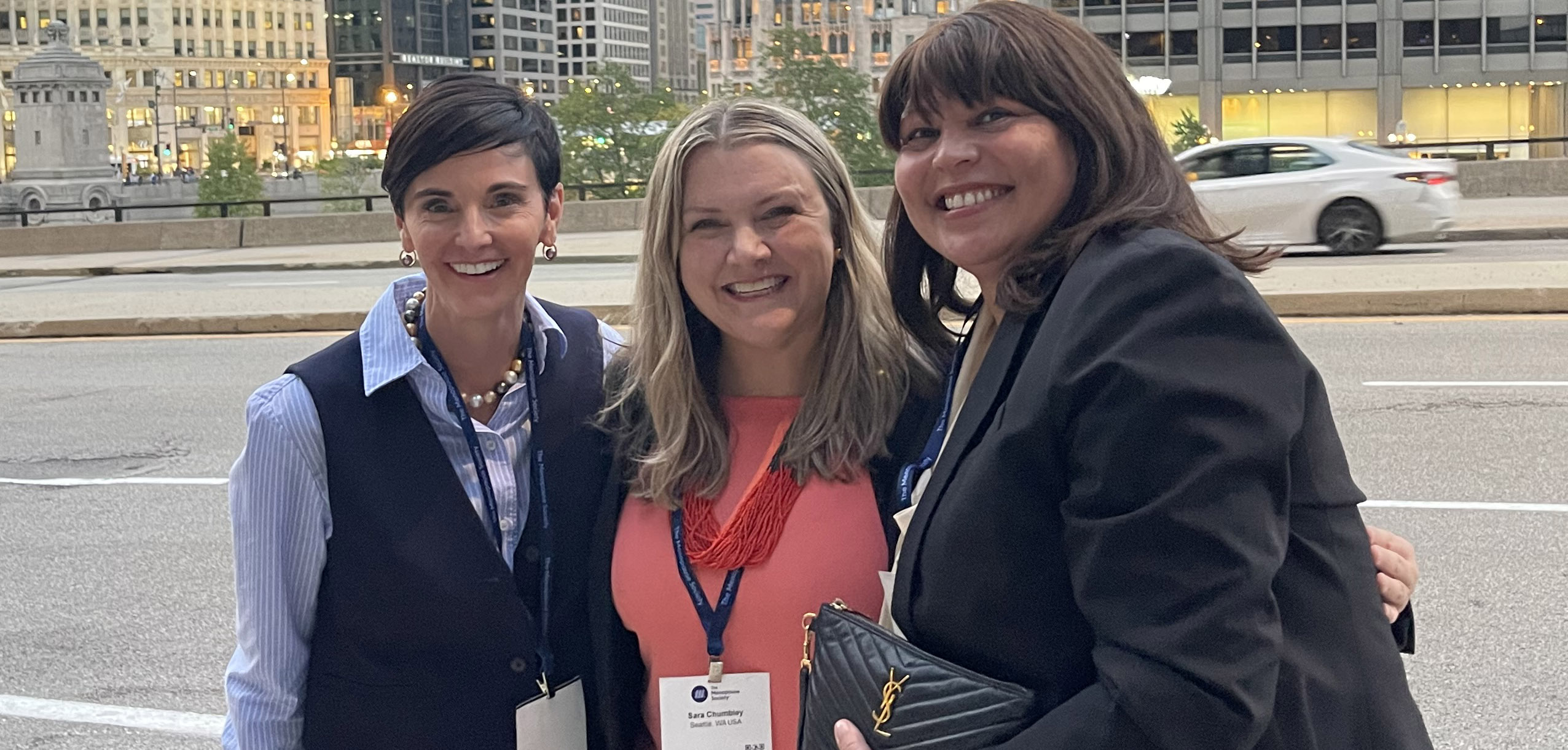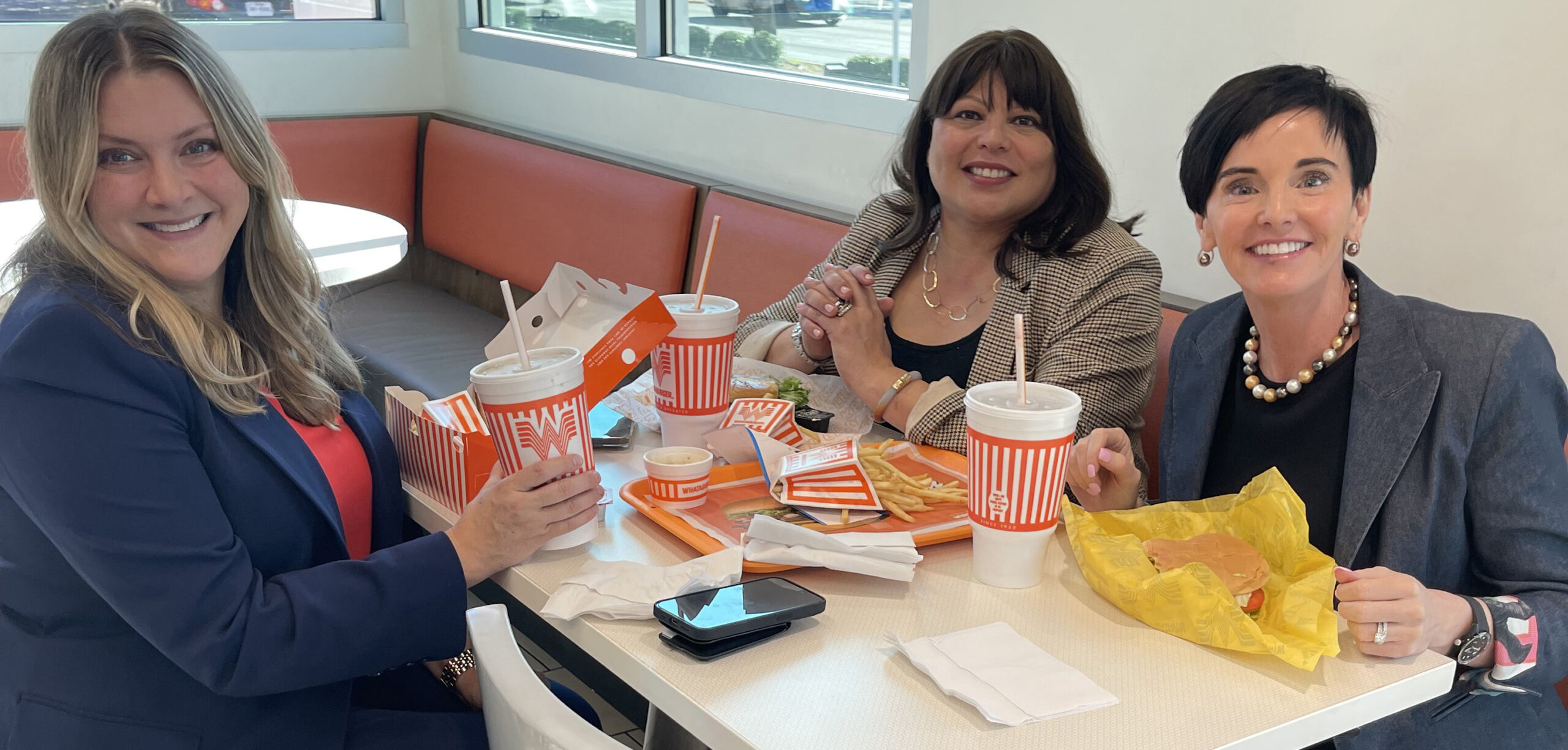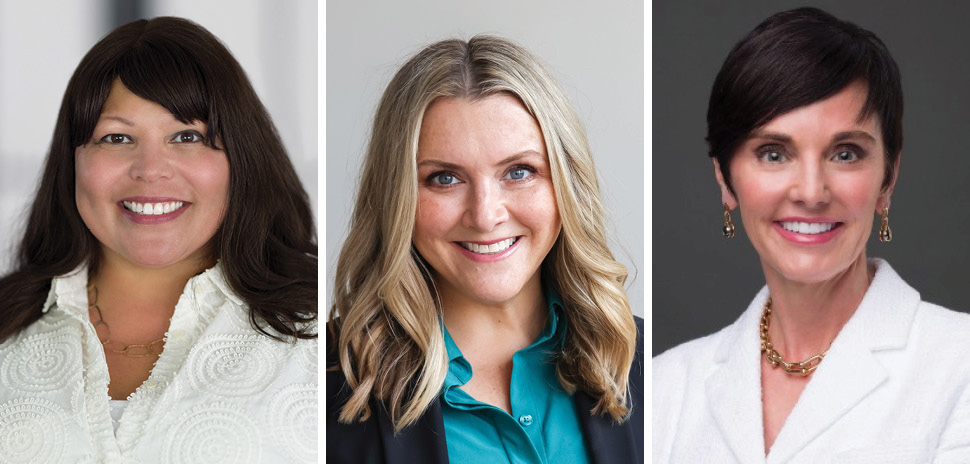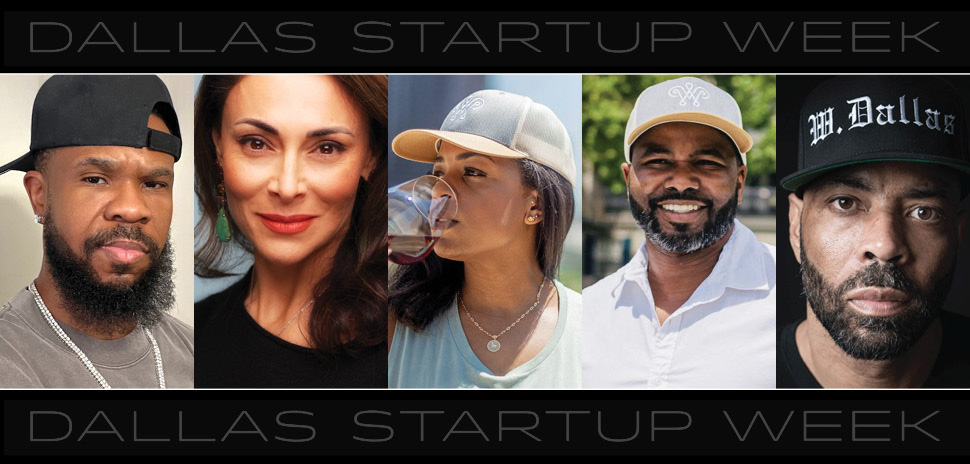According to Alzheimer’s Disease International, someone develops dementia every three seconds, globally. The organization estimates that seventy-eight million people will be living with this brain disease by 2030.
Studies and even clinical trials are happening, but history shows research has not been equal between men and women.
“We get three dollars for every twenty-four dollars a man gets in Alzheimer’s research, yet we make up 66% of that population,” says Stephanie Collins, founder and Chief Patient Advocacy Officer at Eido Bio.
Outraged? So was Collins. It’s statistics like this that led her to team up with two female friends who also work in biotech and form the startup. Eido Bio’s mission is to remedy the dearth of research into all aspects of women’s health.
“When you look at the products that have been brought to market in the last two decades, it sort of starts and stops with birth control,” says Collins. “But we’ve got plenty of birth control, right?”
Asking questions and exposing opportunity
Collins, who earned her undergraduate degree at Texas Women’s University and began her career as a nurse, says research shows that Alzheimer’s diagnoses in women have increased globally over the past two decades, though trends vary by region. Studies suggest the increase could be related to a study published by the Women’s Health Initiative in 2002 that linked hormone replacement therapy (HRT) use to risks including increased risk of blood clots, stroke, and breast cancer. But findings remain mixed. While there’s little debate that women are at higher risk than men for developing Alzheimer’s, further research is needed to fully understand the role hormones play.
And that’s just one disease: “We dug deeper and realized the disparities and the discrepancies in women’s health that we were not really aware of.”
Collins worked in the burn unit and trauma before transitioning to life sciences—specifically pharmaceutical and rare disease. “When you’re in rare and ultra rare disease, everybody’s lining up to help solve that problem. But women’s health is a different beast.”
It was that fact, ongoing research into her own menopause journey, and an auspicious lunch that led to the founding of Eido Bio. Collin’s co-founder Sara Chumbley had identified a promising asset that would address a critical gap in menopause treatment and shared the information with third founder, Courtney Rutkowski. All three discussed the idea, and then Chumbley asked, “Have you guys ever thought about starting a biopharma company?”
Eido is a Greek word that means to see, understand, or discover. And that’s what they’re doing with women’s healthcare for both diseases that impact everyone, and biological processes that are uniquely female.
“Our entire careers have been in life science, biopharma, biotech, all sorts of different roles—regulatory, clinical, medical, commercial… And so with our different expertise, it makes us a really good team.”

Eido Bio founders at the Menopause Society meeting in Chicago fall, 2024
Cool science
The findings of the 2002 Women’s Health Initiative study were later debunked, but Collins says the fear it created still lingers and has led to a gap in women’s health research that stretched for more than twenty years.
“Literally every Big pharma divested their women’s health divisions.”
So with the Series A that Eido Bio is raising it will fund a pivotal trial for its leading solution to address a large gap in menopause care.
Collins notes that men have more than 15 FDA-approved products for testosterone, a hormone that plays a role in both men and, at one-tenth the dose, women’s health. The number of similar products for women: zero.
“We’re each going through our own journey of perimenopause and menopause, so researching this part of women’s health is personal, but it’s also information that millions of other women could benefit from. If clinicians were educated on basic mitigation strategies for perimenopause and menopause, women could thrive instead of ‘endure’ this phase of life.”
It’s this kind of cool science that she hopes might draw more girls towards careers in STEM fields, where, although women are making gains they are still outnumbered by men. According to a 2023 World Economic Forum study, women only makeup 29.2 percent of the STEM workforce. The data also reflects a drop off in female representation in more senior roles. To create a sustainable pipeline of women through all levels of seniority in STEM careers, Collins says it’s imperative to create experiences that will keep girls engaged.
“Maybe they had a bad experience with a 5th grade math teacher and she embarrassed them. That was me. Things like that can really mess with your mind and make you think that you’re not smart enough. And so I made a conscious decision, like, I am not going to fail. This may not come easily to me, but I will work hard and I will figure it out.”
And she proved that math teacher wrong.

Eido Bio founders visiting a client in North Texas (and grabbing a bite at one of their favorite places). [Photo: Eido Bio]
Join the conversation and learn more
Eido Bio is based in Seattle, with a strong Dallas presence—the team plans on leasing office space at Pegasus Park at some point. “We love the North Texas ecosystem,” the team says.
On March 29, Collins will help launch the SHIFT event in Dallas—where female doctors who specialize in women’s health will gather to create conversation and share information.
“Think of this as the beginning of a movement, not just a one-day event,” says Collins. “We invite all North Texas women and men in midlife and beyond to join us, where you’ll connect with healthcare professionals, business leaders, and advocates.” For details and tickets, click here.
Voices contributor Nicole Ward is a data journalist for the Dallas Regional Chamber.
Don’t miss what’s next. Subscribe to Dallas Innovates.
Track Dallas-Fort Worth’s business and innovation landscape with our curated news in your inbox Tuesday-Thursday.





























